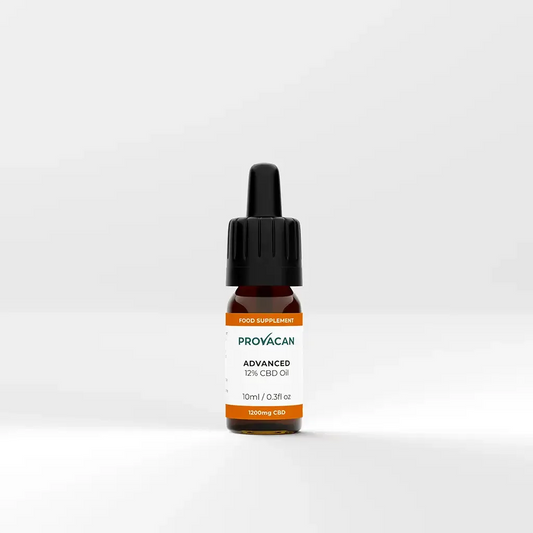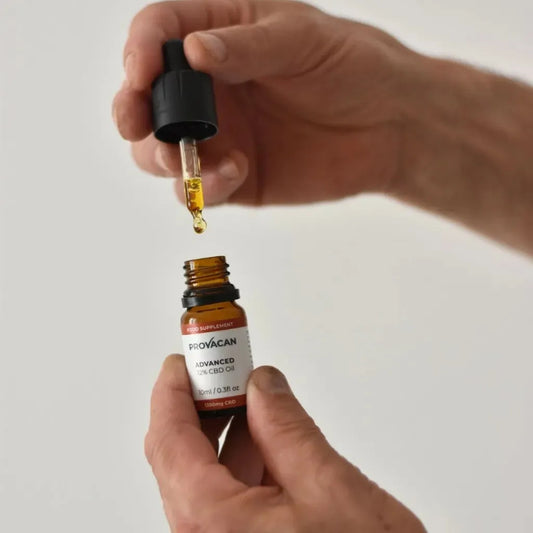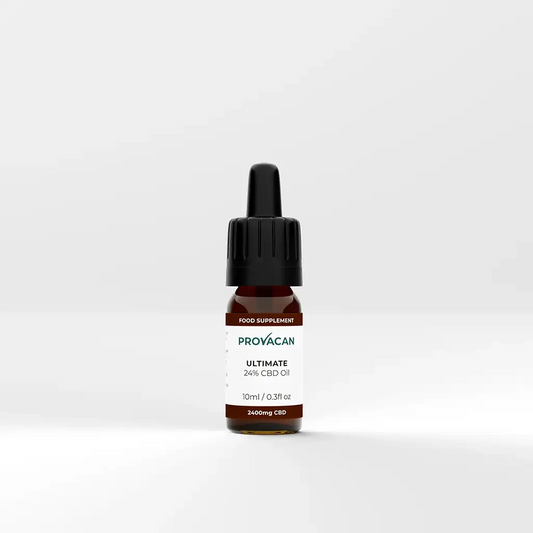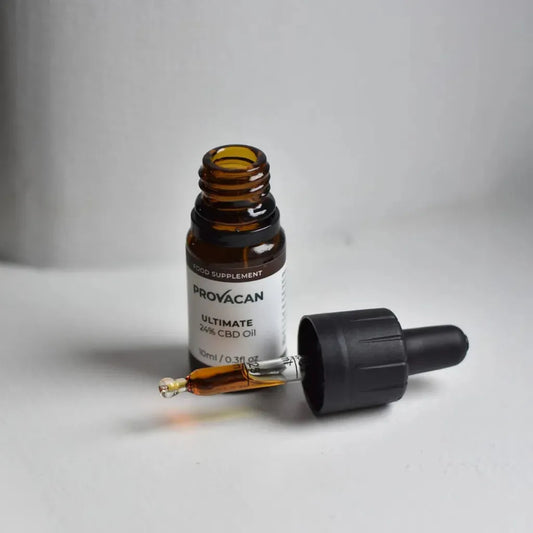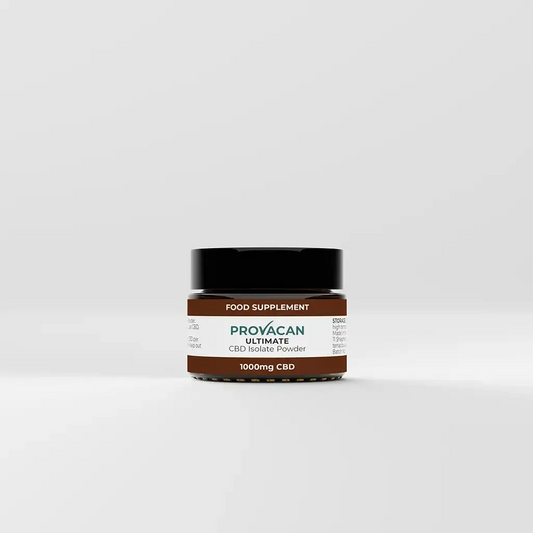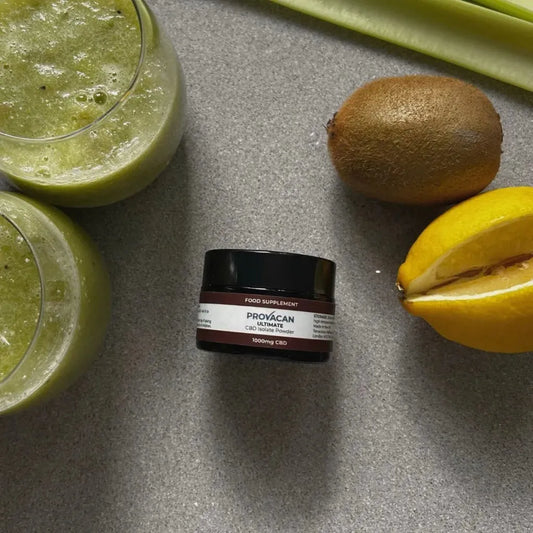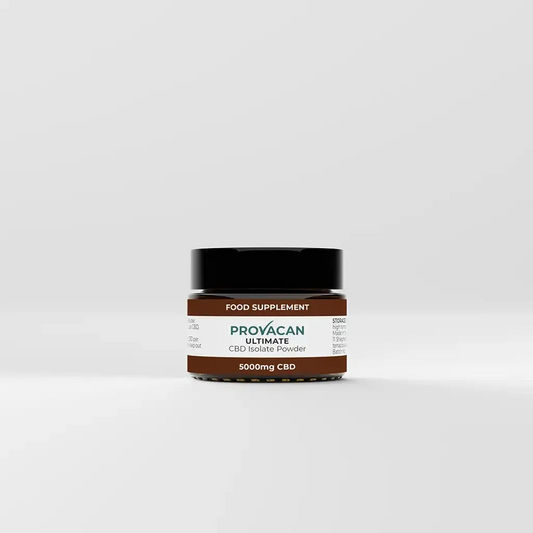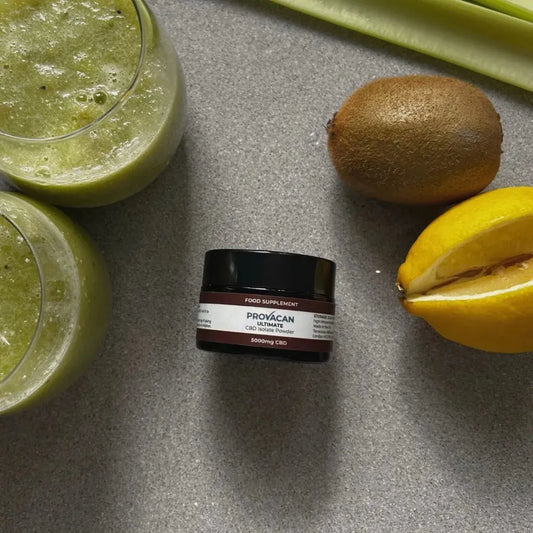Key Takeaways:
- Hemp's Sustainable Versatility: Hemp's diverse applications span from nutrition and wellness to industrial uses, emphasising its sustainability.
- Provacan's Scientific Excellence: Provacan leverages rigorous scientific research and advanced extraction methods to deliver high-quality CBD products, enhancing overall well-being.
- CBD Health Revolution: The rise of CBD products derived from hemp has brought critical health benefits without psychoactive effects, marking a significant shift in natural wellness solutions.
Hemp is one of the most versatile plants in the world, with a history of cultivation that stretches back thousands of years. Its uses are diverse, ranging from textiles to food, and its benefits span various sectors, including health and wellness.
In this article, we'll explore the many applications of hemp and the advantages it offers, with a special focus on the role of hemp in producing high-quality CBD products, such as those offered by Provacan.
The Historical Significance of Hemp
Hemp has been cultivated for thousands of years, with evidence of its use dating back to ancient civilizations in China, India, and the Middle East. It was valued for its strong fibres, which were used to make:
- Textiles: Fabrics, ropes, and sails
- Paper: One of the earliest forms of writing materials
- Ropes and Twine: Essential for seafaring and agriculture
In more recent history, hemp played an important role in the American colonies, where it was grown extensively. Today, hemp is experiencing a resurgence in popularity as its environmental benefits and diverse applications are once again being recognised.
A Nutritional Powerhouse
Hemp seeds are a well-known superfood, and for good reason. They're a complete protein source, offering all nine essential amino acids that our bodies can't produce on their own. This makes them especially valuable for plant-based diets. Plus, they boast an ideal balance of omega-3 and omega-6 fatty acids, which are key for heart and brain health, and reducing inflammation.
But that's not all – hemp is also dense with dietary fibre, magnesium for strong bones and energy, and vitamin E, an antioxidant that bolsters the immune system. Whether you're sprinkling hemp on your morning yoghurt or baking it into your favourite treats, it's an effortless way to up your nutrient game.
Hemp in Textiles and Construction
One of the oldest and most common uses of hemp is in the production of textiles. Hemp fibres are incredibly strong and durable, making them ideal for creating a variety of fabrics. These fabrics can range from coarse materials, like those used for canvas and denim, to finer, softer textiles suitable for clothing and home furnishings.
In construction, hemp is used to create a material known as hempcrete. Hempcrete is a bio-composite material made from the inner woody core of the hemp plant mixed with a lime binder. This material is lightweight, breathable, and provides excellent insulation. Hempcrete is also carbon-negative, meaning it absorbs more carbon dioxide during its lifecycle than is emitted during its production, making it an environmentally friendly alternative to traditional building materials.
Hemp in Health and Wellness
Hemp's most notable resurgence in recent years has been in the health and wellness sector, particularly in the production of CBD (cannabidiol) products. CBD is a non-psychoactive compound found in the hemp plant, and it has gained widespread attention for its potential therapeutic benefits.
CBD is used in a variety of forms, including oils, capsules, edibles, and topical products. Research suggests that CBD may help with conditions such as anxiety, chronic pain, and sleep disorders. It is also being studied for its potential to reduce inflammation and support overall wellness.
One of the leading companies in the UK offering high-quality CBD products is Provacan. Their products are made with full-spectrum hemp extract, which means they contain a range of cannabinoids, terpenes, and other beneficial compounds found in the hemp plant. This full-spectrum approach is believed to enhance the effectiveness of CBD through what is known as the "entourage effect," where all the compounds work together to produce a more pronounced impact.
Environmental Benefits of Hemp
Hemp is recognised for its positive environmental impact. It is a fast-growing plant that requires minimal water and no synthetic pesticides or herbicides to thrive. This makes it an environmentally sustainable crop, especially when compared to other plants like cotton, which are more resource-intensive.
Environmental Advantages:
- Water Efficiency: Requires significantly less water than other crops like cotton
- Pest Resistance: Naturally resistant to pests, reducing the need for chemicals
- Soil Health: Deep roots help prevent erosion and improve soil structure
- Phytoremediation: Hemp's ability to absorb toxins from the soil makes it valuable for rehabilitating contaminated land.
Carbon Sequestration:
- Low Carbon Footprint: Hemp absorbs carbon dioxide as it grows
- Sustainable Products: Hemp-based materials like hempcrete continue to sequester carbon throughout their lifecycle
Industrial Uses of Hemp
Beyond textiles and construction, hemp has a wide range of industrial applications. The fibres from the hemp plant are used to produce bioplastics, which are biodegradable and offer a more sustainable alternative to traditional petroleum-based plastics. These bioplastics can be used in packaging, automotive parts, and other products, reducing the reliance on fossil fuels.
Hemp is also used in the production of paper. Unlike trees, which can take decades to mature, hemp can be harvested in just a few months, making it a more sustainable source of raw material for paper production. Hemp paper is strong, durable, and resistant to yellowing, making it an ideal choice for various applications, including printing, packaging, and even currency.
In the automotive industry, hemp is being explored as a material for car interiors and other components. The fibres are lightweight yet strong, making them suitable for use in composites that can replace traditional materials like fibreglass. This reduces the weight of the vehicle and reduces the environmental impact of the manufacturing process.
The Future of Hemp
As awareness of the environmental and health benefits of hemp continues to grow, the demand for hemp-based products is expected to increase. This resurgence of interest in hemp is driving innovation across various industries, from fashion to pharmaceuticals.
Hemp's potential as a sustainable crop is particularly significant in the context of global efforts to combat climate change and reduce environmental impact. With its versatility and low environmental footprint, hemp is well-positioned to play a key role in the future of sustainable agriculture and industry. As research into the health benefits of CBD and other hemp-derived compounds advances, we can expect to see new and exciting applications for hemp in medicine and wellness.
Discover the Natural Benefits of CBD with Provacan
As awareness about CBD's potential health benefits increases, more and more people are turning to hemp-derived products for natural relief from stress, anxiety, and chronic pain without the psychoactive effects of THC. Provacan leads the industry with premium quality CBD products developed through cutting-edge scientific research and innovative extraction techniques.
Provacan’s extensive range of CBD solutions are designed to seamlessly integrate into your daily routine, providing a versatile approach to health that aligns with your individual lifestyle goals. As the body of scientific research around CBD grows, so does its reputation as a multi-faceted ally in promoting cardiovascular health, neuroprotection, and overall mood enhancement.
Provacan’s CBD products include:
Final Thoughts
In summary, hemp stands as a formidable plant with a wide array of uses, stretching from the textile industry to the realm of wellness and medicine. As an audience keen on wellness and conscientious about the sources of their CBD consumption, understanding the multifaceted applications and benefits of hemp underscores its significance beyond just CBD production.
Provacan's commitment to your well-being is reflected through our relentless pursuit of unmatched CBD quality, which stems from the pure and potent hemp plant. Our meticulous extraction methods and superior product formulation are designed to harness the full potential of hemp, ensuring that you receive the benefits it offers in their most effective form.
Read also:
Frequently Asked Questions On Hemp Usage
What is hemp?
Hemp is a variety of the Cannabis sativa plant species, known for its low levels of THC (the psychoactive component found in marijuana) and its diverse industrial applications. Cultivated for its fibre, seeds, oil, and cannabinoids like CBD, hemp has been utilised for thousands of years due to its versatility and sustainability.
How is hemp different from marijuana?
Though both hemp and marijuana belong to the Cannabis sativa family, their distinction lies primarily in their THC content. Hemp contains no more than 0.3% THC by dry weight, which means it does not exhibit psychoactive effects. Marijuana, on the other hand, has higher levels of THC and is used both recreationally and medicinally for its psychoactive properties.
What can be made from hemp?
Hemp's applications are nearly endless. It can be processed into fibres for clothing, textiles, and paper, seeds and oil for nutritional products, and cannabinoids like CBD for wellness products. Its stalks can be transformed into building materials, biofuels, and even bioplastics, showcasing hemp's incredible versatility.
Is hemp used for medicinal purposes?
Indeed, hemp plays a significant role in the medicinal world, primarily due to its cannabinoid content, including CBD. These substances have been studied for their potential to support wellness, ease discomfort, and promote a sense of calm. Unlike THC, CBD from hemp does not produce a "high," making it an attractive option for those seeking its therapeutic benefits without psychoactive effects.
Are hemp seeds nutritious?
Absolutely. Hemp seeds are a powerhouse of nutrition, packed with protein, essential fatty acids (including Omega-3 and Omega-6), vitamins, and minerals. They can contribute to a healthy diet by supporting heart health, reducing inflammation, and promoting skin health. Hemp seeds can be consumed raw, ground into hemp meal, sprouted, or made into dried sprout powder.
Can you cook with hemp products?
Yes, cooking with hemp products is both nutritious and versatile. Hemp seeds, hemp seed oil, and hemp protein powder can be incorporated into a wide range of recipes from smoothies and salads to baked goods and dressings. Hemp seeds have a nutty flavour that complements many dishes.
Is hemp oil beneficial for skin care?
Hemp oil, derived from hemp seeds, is highly beneficial for skin care due to its optimal balance of omega-6 and omega-3 fatty acids, which help to nourish and moisturise the skin. It's also non-comedogenic, meaning it won't clog pores. Hemp oil is used in a variety of topical products, including lotions, balms, and serums, targeting everything from dry skin to acne.
How is hemp used in textiles?
Hemp fibres are known for their durability, strength, and mildew resistance, making them an excellent material for textiles. From clothing and accessories to home furnishings and bags, hemp textiles offer a sustainable alternative to synthetic fabrics, due to hemp's rapid growth rate and minimal need for chemical pesticides or fertilisers.
Can hemp be used as a building material?
Yes, hemp can be made into a building material called "hempcrete," a bio-composite material used for construction and insulation. Hempcrete is lightweight, breathable, and has excellent thermal and acoustic properties, making it an environmentally friendly choice that can reduce energy costs over time.
What are the environmental benefits of using hemp?
Hemp offers numerous environmental benefits, including reduced pesticide and fertiliser use, soil remediation qualities, carbon sequestration, and a decreased dependence on unsustainable raw materials like timber and fossil fuels. Its fast growth rate and dense planting style also discourage weeds, eliminating the need for herbicides. Moreover, hemp’s versatility ensures that every part of the plant can be utilised, minimising waste.
Sources:
- Nawaz, H., Iqbal, M. A., & Ul-Allah, S. (2020). Hemp: A versatile plant with promising commercial potential. European Journal of Agronomy, 119, 126076. https://doi.org/10.1016/j.eja.2020.126076
- Schluttenhofer, C., & Yuan, L. (2017). Challenges towards revitalizing hemp: A multifaceted crop. Trends in Plant Science, 22(11), 917-929. https://doi.org/10.1016/j.tplants.2017.08.004
- Liu, M., Zhang, L., Ser, S., & Cheong, K. L. (2022). Current applications of hemp-derived cannabidiol products in human health and the regulatory landscape. Food and Function, 13(7), 3485-3500. https://doi.org/10.1039/D2FO00129C
- European Industrial Hemp Association (EIHA). (2021). Hemp and its uses: An overview of the market and production in Europe. https://eiha.org/media/publications
- Russo, E. B. (2017). Cannabidiol claims and misconceptions. Trends in Pharmacological Sciences, 38(3), 195-197. https://doi.org/10.1016/j.tips.2016.12.004




